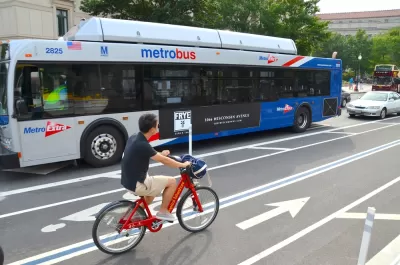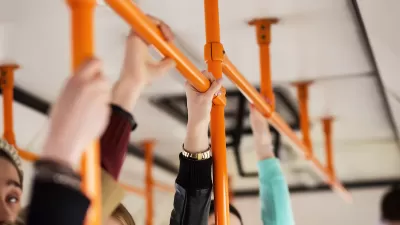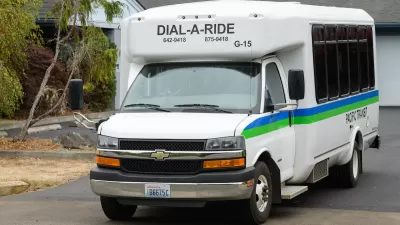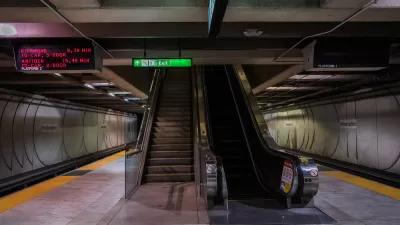Ridership data shows that many D.C. transit users depend on the service, despite a drop in ridership. The system needs changes—and funding—to have a future.

In an opinion piece published in Greater Greater Washington, DW Rowlands asserts that transit in the Washington, D.C. region has a “bright future,” if properly planned for.
The district certainly has transit challenges: the area still has one of the nation’s highest rates of remote work, and D.C. transit has historically relied on a heavy percentage of commuters. However, the distribution of ridership has also evened out over days and times, which, according to Rowlands, “actually has potential benefits for the system, because the extra service that transit agencies run to serve peak ridership is extremely inefficient compared to basic all-day service.”
Rowland adds, “Ridership changes since the start of the pandemic have also highlighted the importance of bus service. While Metrorail ridership first exceeded 50% of its pre-pandemic value in the first half of 2023, Metrobus ridership had returned to nearly 60% of its pre-pandemic value in the third quarter of 2021, and is now above 85% of pre-pandemic ridership.” Rowland attributes this in part to the fact that Metro bus routes serve more residential neighborhoods outside of downtown.
For Rowland, all this is to say that D.C. transit is still a key service for many of the region’s residents. “In the short term, finding the money to close the funding gap and prevent massive service cuts in next July is the most important part of making sure that Metro, and transit in our region generally, has a future.” Rowland also suggests long-term changes, such as fare reform, adapting schedules to match new travel patterns, and adding more bus lanes to improve reliability.
FULL STORY: Transit in the Washington region has a future, if we plan for it

Alabama: Trump Terminates Settlements for Black Communities Harmed By Raw Sewage
Trump deemed the landmark civil rights agreement “illegal DEI and environmental justice policy.”

Study: Maui’s Plan to Convert Vacation Rentals to Long-Term Housing Could Cause Nearly $1 Billion Economic Loss
The plan would reduce visitor accommodation by 25% resulting in 1,900 jobs lost.

Planetizen Federal Action Tracker
A weekly monitor of how Trump’s orders and actions are impacting planners and planning in America.

Wind Energy on the Rise Despite Federal Policy Reversal
The Trump administration is revoking federal support for renewable energy, but demand for new projects continues unabated.

Passengers Flock to Caltrain After Electrification
The new electric trains are running faster and more reliably, leading to strong ridership growth on the Bay Area rail system.

Texas Churches Rally Behind ‘Yes in God’s Back Yard’ Legislation
Religious leaders want the state to reduce zoning regulations to streamline leasing church-owned land to housing developers.
Urban Design for Planners 1: Software Tools
This six-course series explores essential urban design concepts using open source software and equips planners with the tools they need to participate fully in the urban design process.
Planning for Universal Design
Learn the tools for implementing Universal Design in planning regulations.
Caltrans
Smith Gee Studio
Institute for Housing and Urban Development Studies (IHS)
City of Grandview
Harvard GSD Executive Education
Toledo-Lucas County Plan Commissions
Salt Lake City
NYU Wagner Graduate School of Public Service





























